After three months of work on 65 tickets, the Apache Hop community released Apache Hop 2.6.0...
Apache Hop 2.4.0 is available!
Bart Maertens
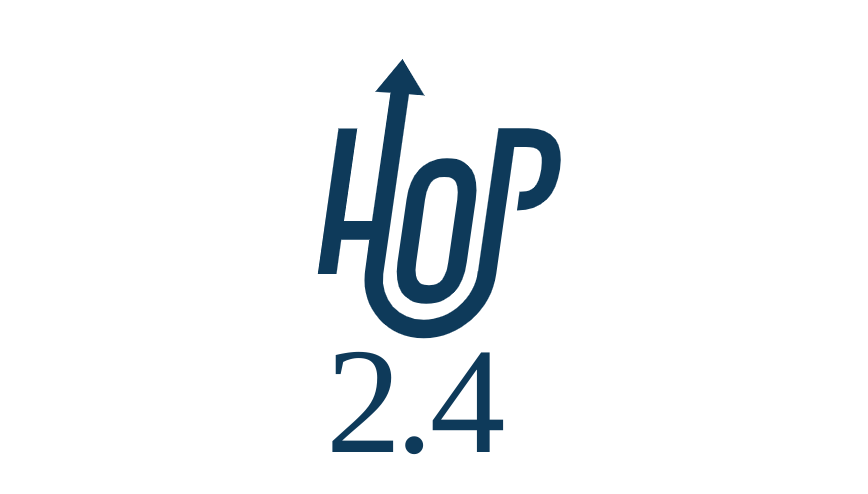
We're two months into what more or less organically has become the bi-monthly release cycle for Apache Hop, so here's the next Apache Hop 2.4.0 release!
After the avalanche of new functionality in the earlier Apache Hop releases, the latest releases are evolution rather revolution. The Apache Hop team is working hard to harden the functionality, to extend the available documentation and samples, and to provide a smoother experience for Apache Hop users.
That doesn't mean there are no new features in this 2.4.0 release. Let's take a look at what's new...
DuckDB
DuckDB is an in-process SQL OLAP and column-oriented database. DuckDB is serverless and works in memory or on files. Point your database connection to a file in the Apache Hop relational database connection editor and you're done.

Relational Database Connection driver info
The relational database connection editor now shows whether a JDBC driver is available for your selected database. If a driver is available, the editor also shows the version.
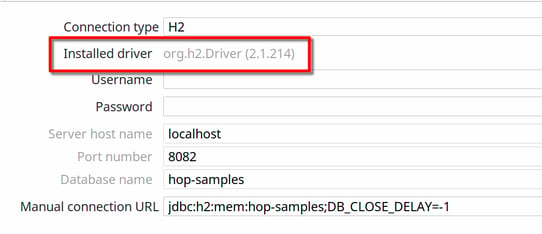
Enable/Disable hops between transforms
Hop Gui already provided the option to enable/disable hops downstream in workflows and pipelines.
Drag a rectangle (lasso) selection over multiple transforms in a pipeline or actions in a workflow, and click on one of the hops. The context (popup) dialog will show the "Enable/Disable hops between selection" option.

A new JSR-223 Script transform
Even though Apache Hop aims to provide as much functionality as possible through the Hop Gui user interface, there are use cases where you want to (or need to) write code or run scripts.
Hop .2.4.0 comes with a new transform (ported from the PDI plugin originally developed by Matt Burgess). This transform lets you write scripts in JSR-223 languages like ECMAScript (Javascript as part of the Java Virtual Machine), Groovy and Python (through the Jython library).
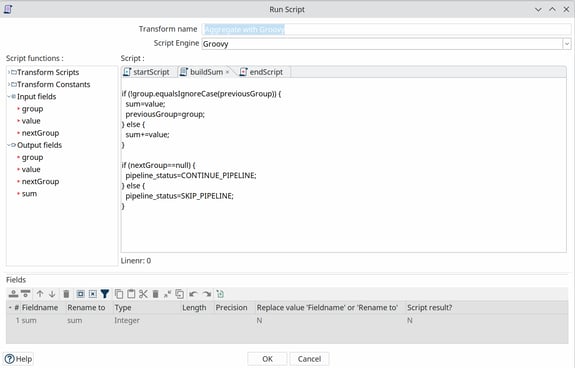
A new Data Validator transform
This transform allows you to add data validations which can each validate the input data for the various fields in the input rows.
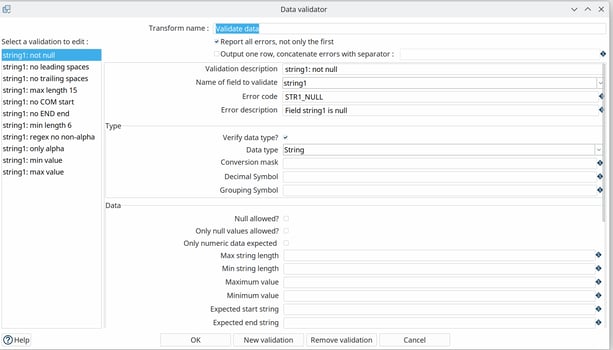
Restrict environment list to active project
When working with multiple projects and environments, the project and environment dropdown lists can become overpopulated. A new option in the configuration perspective allows you to restrict the environments in this dropdown to only show the environments for the current (selected) project.
To enable this option, go to the configuration perspective, select Plugins -> Projects and check the "Restrict environment list to active project".
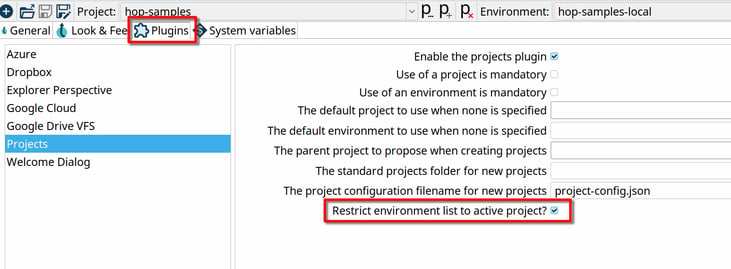
Documentation and samples
Just like software, documentation is never finished. Apache Hop 2.4.0 comes with tons of new and improved documentation pages and a batch of new samples. The "transforms" folder in the samples project now contains close to 100 samples for some of the most popular transforms, with more to come.
The samples project is now also included in the Apache Hop integration tests. This not only helps to make sure all samples pipelines and workflows work correctly, it also guarantees the entire samples project (which is becoming quite complex) continues to work as a whole.
Community growth
As an Apache project, the community is key for Apache Hop. The Apache Hop community continues to grow in the number of community members, geographical areas, and contributions, even over the relatively slow winter holiday period.
Great communities build great software, a huge thank you and shoutout to everyone who was involved to make Apache Hop 2.4.0 the big release it is.
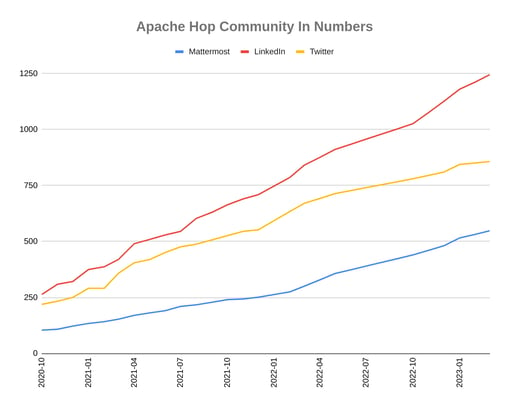
Apache Hop and know.bi
At know.bi, we were involved with Apache Hop since its inception. We are active and proud community members and contributors and will continue to do so. Get in touch if you'd like to find out more about how know.bi and Apache Hop can help you solve your data engineering and data orchestration challenges.

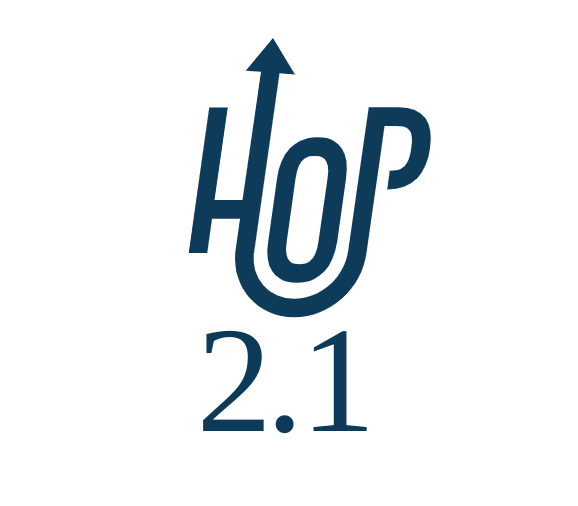
Blog comments